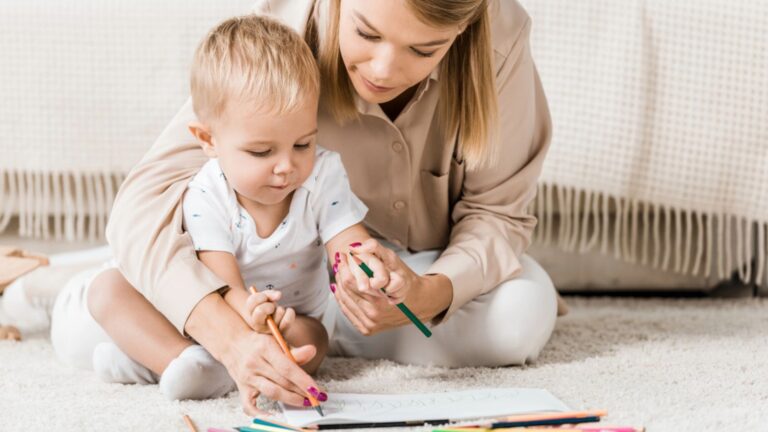Caring for a Disabled Child: Don’t Fight this Battle Alone
This post may contain affiliate links. As an Amazon Associate, I earn from qualifying purchases.
I know there are many mamas out there raising children with varying levels of disability. While I’ve seen just how joyful and rewarding life can be with any child- it can also come with some very tough realities to work through on a daily basis when caring for a disabled child. This week, fellow mama and writer Katherine Weber gives all a moms a reminder of the importance of asking for help and getting the support they need in the face of adversity.
Caring for Disabled Child
Caring for a child with severe disability can be an emotionally, physically, and financially taxing experience very few parents and caregivers are properly equipped to deal with. With many disabled children being dependent on their caregivers nearly 24/7 for their essential needs, it is extremely easy for caregivers to fall on the burnout continuum without any exit point in sight.
The good news is that you are not alone in this lengthy battle. There are people that can and are eager to help. Let’s review how to get help.
Don’t Reach the Point of Burnout
Avoiding burnout as a parent of a child with special needs is easier said than done. But one tiny realization might help on the road to recovery for the entire family: Your child is as strong as his or her foundation. A child’s foundation is his or her parents and caregivers. If the foundation is about to crumble, your child is in peril too.
You know what they say (and for a good reason): “Put your oxygen mask on first, before putting on your child’s.” If you collapse, both of you collapse. And mothers are at the highest risk for parental burnout since more than 90% of caregivers of children with severe disabilities are women.
Caregivers are More Likely to Develop Anxiety
It is no secret that caregivers of severely impaired children are more prone to developing stress-related conditions, including anxiety and depression. They also often experience a lower quality of life than their peers with healthy offspring do.
Many caregivers complain about not being able to properly handle the little patients’ behavior issues and cognitive deficits, lack of peer support, poor self-efficacy, and time and financial constraints.
What’s more, a diagnosis of severe disability often comes as a shock to parents, who are suddenly flooded with tasks and responsibilities they are unprepared for, both mentally and physically. The challenges of caring for a child with a severe disability can quickly add up while the parent’s or caregiver’s self-esteem and resources erode, thus reaching the point of burnout without even realizing it.
Create a Support System
The best way to prevent exhaustion is to set in place a support system. There are countless things you can do to make your life easier. Raising a child with complex needs takes time, love, and patience, and with the right support and early intervention his or her life can get visibly better.
There are dozens of people that can lend you a helping hand. Here are just some of them:
Doctors
- Don’t shy away from asking you child’s doctors for help. A medical professional can refer you to invaluable resources, from support groups for parents of disabled children in your community to free government programs and early intervention treatment plans for your child.
Other professionals
You can learn and get help from many other professionals when caring for a child with severe disability:
- Physical therapists and occupational therapists can help you continue therapy at home to sooth your child’s sore muscles with a gentle massage or improve their balance and coordination with the right exercises.
- Paid home healthcare professionals can look after your child for a few hours or the whole day (If money is an issue, you can ask your family members or friends for help)
- Clergy members/ Psychotherapists: For when you look for a professional opinion on handling stress and sentiment of being a failure as a parent that might pop up when your responsibilities are too overwhelming.
- Lawyers: When your child’s diagnosis has put a heavy strain on your family finances, and the ones at fault have not been held liable for the injuries that spurred the diagnosis.
Other parents (support groups)
- When caring for a child with severe disability, a caregiver might feel isolated. It is critical to connect with other parents in your situation to learn from their experience and get the much-needed encouragement. You can find these people in a physical therapist’s waiting room, online, or through referrals.
Family and friends
- Some family members and friends might be reluctant in giving you a helping hand with your child’s care, but with a little education about what your child’s disability entails, they might jump on the support bandwagon too.
To Wrap It Up
Severe childhood disability such as mental retardation, severe ASD, or cerebral palsy comes in many shapes and forms, each affecting the lives of sufferers differently, but one thing all parents/caregivers of disabled children have in common is that the experience of caring for a child with moderate to severe symptoms can be both emotionally and physically draining. The bright side is that with the appropriate support system in place, you can take some of the burden off your shoulders and start to enjoy life once more.
What have you found to be most helpful for support in raising your child?










i love this exceptional article